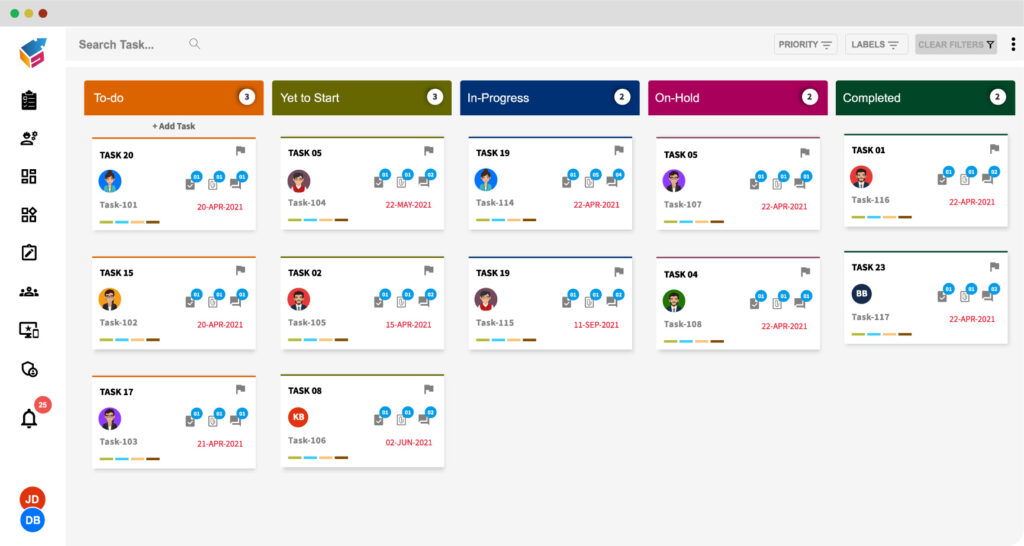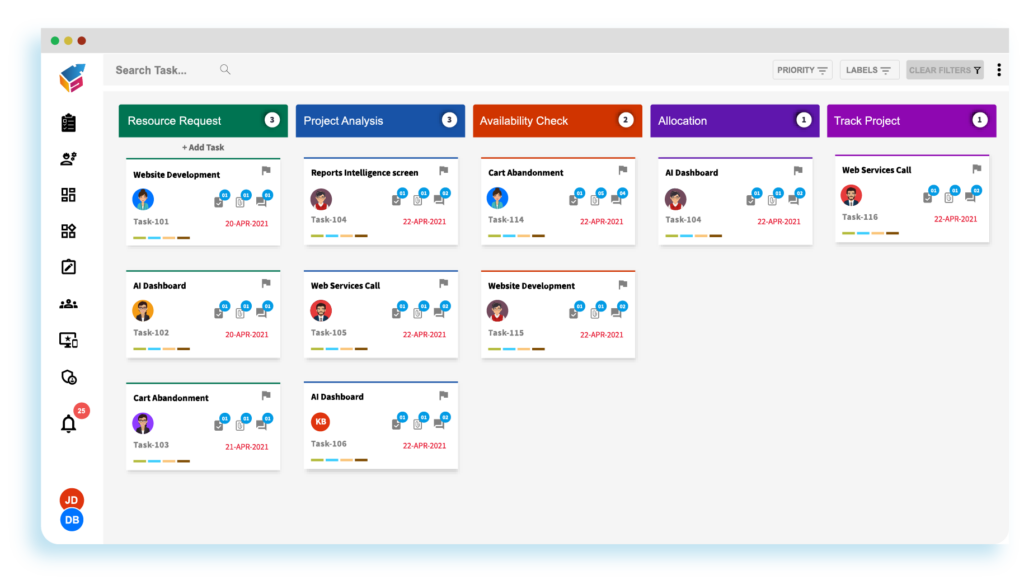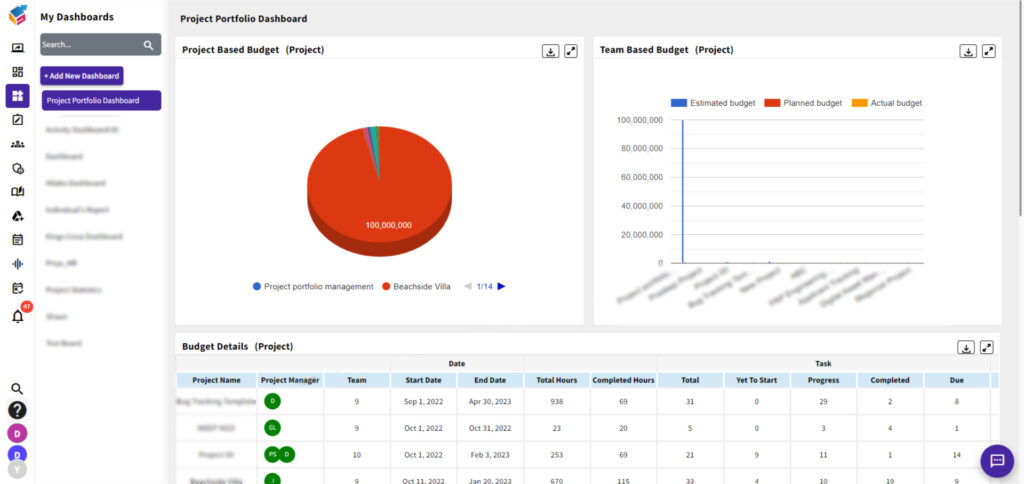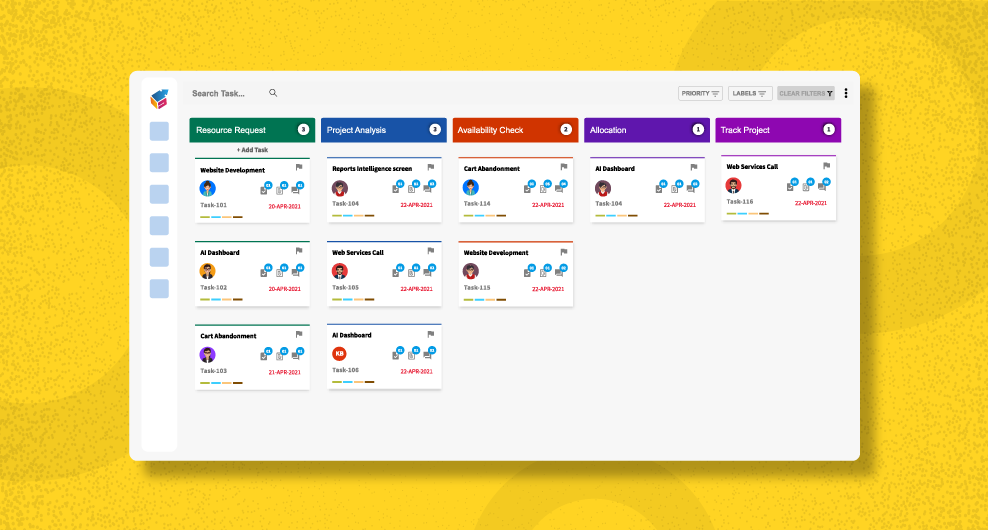Table of Contents
What is an Enterprise Project Management Software?
Enterprise project management software (EPM software) is a type of software that is designed to help businesses manage and track their projects from start to finish. It provides a comprehensive set of tools and capabilities that enable businesses to plan, execute, and monitor complex projects with ease.
Enterprise project management software typically includes features such as project planning and scheduling, resource management, budget tracking, risk management, collaboration and communication tools, reporting and analytics, and more. It allows project managers to keep track of project development progress, identify potential issues or delays, and make necessary adjustments to keep the project on track.

EPM software is used by a wide range of businesses, from small startups to large enterprises, across various industries such as construction, IT, healthcare, manufacturing, real-estate and more. It helps businesses to streamline their project management processes, increase efficiency, and improve collaboration among team members. EPM software can also provide real-time insights into project performance, enabling businesses to make data-driven decisions to ensure project success.
Benefits of Enterprise Project Management Software
Enterprise Management software is a powerful tool that provides many benefits to businesses of all sizes. Here are some of the key benefits of using EPM software:
- Improved project planning and scheduling: Enterprise management software provides a comprehensive set of tools and capabilities that enable businesses to plan and schedule their projects more effectively. This includes features such as Gantt charts, resource allocation, and budget tracking, which make it easier to create detailed project plans that are achievable and realistic.

- Increased efficiency: Automation software streamlines project management processes, reduces manual effort and automates repetitive tasks, saving time and effort. It allows team members to focus on their core tasks, rather than wasting time on administrative tasks such as tracking progress, deadlines, and status reports.
- Better collaboration and communication: Team collaboration software enables teams to collaborate and communicate more effectively, regardless of their location. Team members can access real-time updates on project progress, communicate through built-in chat features and shared dashboards, and share files easily. This improves team collaboration, coordination and can lead to better results.
- Enhanced risk management: EPM software allows businesses to identify and manage project risks more effectively. It provides real-time insights into potential risks, enabling businesses to make informed decisions and take appropriate measures to mitigate risk.
- Improved reporting and analytics: Project management software provides detailed reporting and analytics capabilities, enabling businesses to track project performance, identify bottlenecks, and make data-driven decisions. It also provides historical data, which can be used for future project planning, ensuring that projects are delivered on time and within budget.
- Increased transparency: EPM software provides real-time visibility into project progress, ensuring that all team members are on the same page. This transparency helps teams to work together more effectively, reduces confusion and errors, and improves accountability.
Top 5 Enterprise Project Management Software
As businesses continue to grow and expand, the need for effective project management becomes increasingly important. Enterprise project management software offers a powerful set of tools and capabilities that enable businesses to plan, execute, and monitor complex projects with ease.
In this section, we will be discussing the top enterprise project management software options for 2023.
Microsoft Project
Microsoft Project is one of the most widely used enterprise project management tools in the world. It offers comprehensive project planning and tracking capabilities, including Gantt charts, resource allocation, and budget tracking. Microsoft Project also integrates seamlessly with other Microsoft products, such as Excel, Word, and PowerPoint.
One of the major advantages of Microsoft Project is its scalability. It is equally effective for managing small projects as it is for managing large, complex projects. With its cloud-based option, Microsoft Project also offers greater flexibility and collaboration capabilities.
Yoroproject
Yoroproject is a popular project management tool that is specifically designed for agile development projects. It offers a wide range of project tracking and management tools, including bug tracking, project planning, Kanban board, and custom reporting.

One of the key advantages of Yoroproject is its flexibility. It can be customized to suit the needs of any team or project, and it offers a wide range of third-party integrations. Yoroproject also offers real-time collaboration and communication capabilities, making it a great choice for teams that work remotely.
Asana
Asana is a cloud-based project management software that offers a range of features and tools for managing complex projects. It offers a simple, intuitive interface that allows users to easily manage tasks, assign deadlines, and track progress.
One of the key advantages of Asana is its collaboration capabilities. It allows team members to easily communicate and share files, making it easier to work together on complex projects. Asana also offers a range of integrations with other popular tools, such as Slack and Dropbox.
Trello
Trello is a popular project management tool that uses a visual board to help users track and manage tasks. It offers a simple, intuitive interface that makes it easy to manage complex projects.
Trello is designed to help teams organize and manage their projects in a simple and intuitive way. Trello uses a card-based system, where each card represents a task or project and can be moved between different lists to indicate its progress.
Wrike
Wrike is a cloud-based project management software that offers a range of features and tools for managing complex projects. It offers a simple, intuitive interface that allows users to easily manage tasks, assign deadlines, and track progress.
One of the key advantages of Wrike is its collaboration capabilities. It allows team members to easily communicate and share files, making it easier to work together on complex projects. Wrike also offers a range of integrations with other popular tools, such as Slack and Salesforce.
Summary
These top enterprise project management software options for 2023 offer a range of features and capabilities that make it easier to manage complex projects. Whether you are managing a small team or a large, complex project, these tools can help you stay organized, track progress, and achieve your goals.
Choose the one that suits your organization’s needs and budget and start managing your projects with ease.




